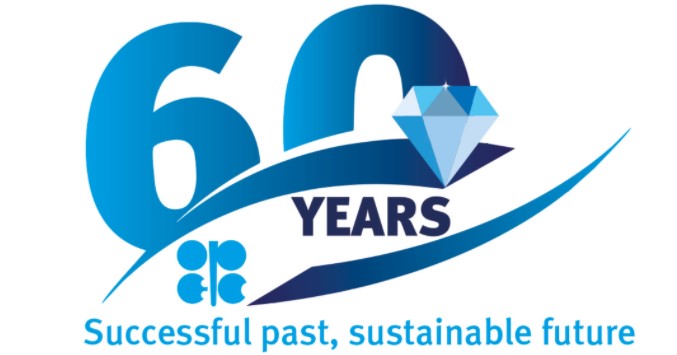OPEC @ 60
The Organisation of Petroleum Exporting Countries (OPEC), the 13-member bloc of oil-rich nations turned 60 this September. The diamond celebration comes amidst the coronavirus (COVID-19) pandemic that hit its very existence. OPEC’s historic journey began in September 1960 with the ‘Baghdad Conference’ at the Al-Shaab Hall in Bab Al-Muaadham, Baghdad, Iraq and attended by the […]

The Organisation of Petroleum Exporting Countries (OPEC), the 13-member bloc of oil-rich nations turned 60 this September.
The diamond celebration comes amidst the coronavirus (COVID-19) pandemic that hit its very existence.
OPEC’s historic journey began in September 1960 with the ‘Baghdad Conference’ at the Al-Shaab Hall in Bab Al-Muaadham, Baghdad, Iraq and attended by the five founding members – Iran, Iraq, Kuwait, Saudi Arabia and Venezuela.
The meeting decided to affect the international oil sector by playing a pivotal role in the oil industry as it pursues its noble objective – supporting stability in the world’s oil market in the interests of producers, consumers and the global economy. Sixty years later, OPEC continues to work along this line.
OPEC Secretary General Mohammad Sanusi Barkindo, said “The 60 year anniversary of OPEC’s founding offers an opportunity for us to take stock of the momentous journey this organisation has been on. In learning the lessons of the past, we can look forward to the future. When our organisation was founded, few could have foreseen the enormous, positive impact that OPEC would have on the oil market and the global economy. The vision of our founder members lives in the hearts of all people who seek oil market stability in the interests of producers, consumers and the global economy.”
Indeed, the 60 years of OPEC have witnessed momentous milestones. In 1965, it moved its headquarters from Geneva, Switzerland, to the Austrian capital of Vienna. And it became a global force in 1973 when member countries led by Saudi Arabia, Iran and Iraq, brought the United States of America’s economy to its knees through an oil embargo as it suspended oil shipments from the Middle East.
It also imposed steep production cuts in retaliation for US support of Israel during the Yom Kippur War. This caused fuel shortages and shot up global oil prices.
By the time the embargo was lifted, US was pushed into its worst recession since World War II. And the western powers took notice and moved to either influence OPEC or destroy it.
Another milestone for OPEC came in 2016 when its member countries joined 10 other oil-producing countries and signed the ‘Declaration of Cooperation’ to support stability in the global oil market. The Declaration revolves around three key principles: transparency, equity and fairness.
The momentum continued when all the 24 oil-producing countries endorsed the ‘Charter of Cooperation’ in 2019, a voluntary platform for states to facilitate dialogue and exchange views regarding conditions and developments in the global oil and energy markets. This in turn contributed to a secure energy supply and lasting stability for the benefit of producers, consumers, investors and the world economy.
Yet, compared with the influence it wielded in the past as a cartel, OPEC’s height of glory seems over. It is now weakened by infighting within its ranks, the rise of the Shale boom that made the US a major oil producer and exporter and the new global push for renewable energy as climate change worries took centre stage.
These have made its market share diminish to about 30 percent today, from a height of 50 percent in 1973. In addition, the oil bloc has been hurt by involuntary losses in war-torn Libya and the fallout from US sanctions against Iran and Venezuela.
The coronavirus pandemic dealt the most devastating blow to OPEC as the global lockdowns brought cars, planes and trains to a screeching halt, causing oil consumption to drop by a quarter and oil prices trading below $0 a barrel in the US, at one point.
However, despite the setbacks, OPEC is still relevant as oil would still remain the world’s most important commodity for years to come. So, we salute the oil bloc as it celebrates its 60th anniversary focused on being the major platform for cooperation and dialogue in stabilising the global oil sector. Going forward, member countries must work together to ensure greater relevance in developments in the oil market, being part of the global energy transition, decarbonisation of economies, climate change and technological innovation.
